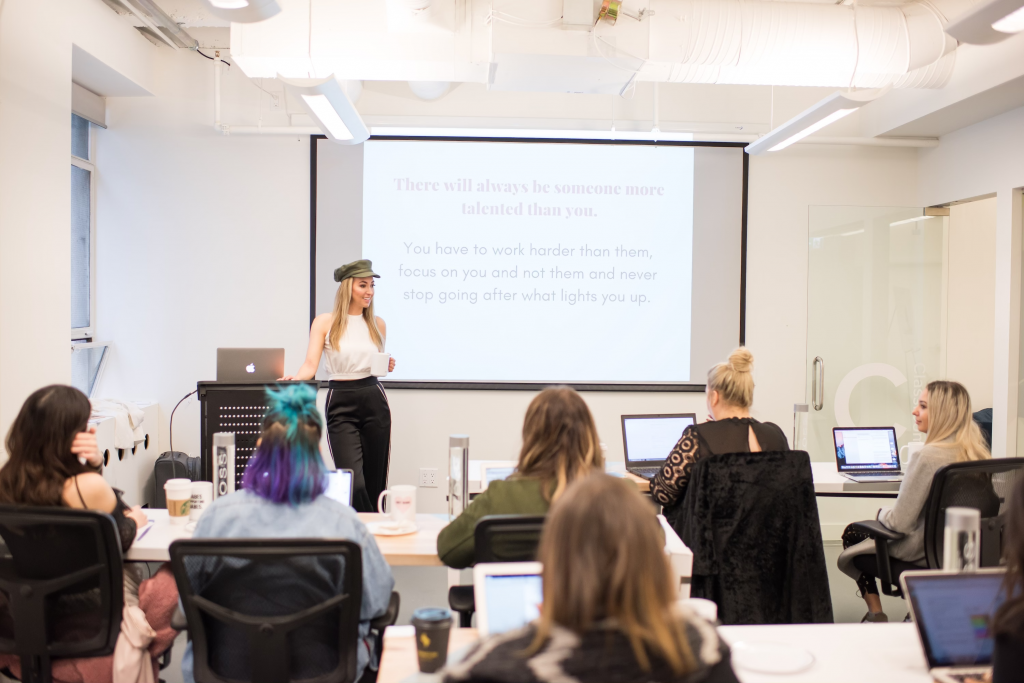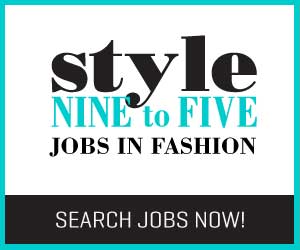
As a career expert, Style Nine to Five’s Founder, Christie Lohr, receives a constant stream of DM’s from her followers asking questions about their job searches. “I love hearing from people looking for advice, and I try to answer as many of their questions on my Instagram Stories, but I can’t get to them all!” she says.
If you have questions about changing industries, applying to jobs, or anything about taking the next step in your career, you’re not alone. That’s why we’ve raided Christie’s list of questions to pick out the ones that she hears most often – and we’re answering them here.
1 – I want to change industries. How?
Changing industries can be daunting, whether you’re a nurse who wants to get into fashion or an engineer looking for a job in marketing. The good news is that it’s not impossible – it just takes the right resume and cover letter strategy.
Start with the “skills” section of your resume. “When you’re changing industries, it’s so important to highlight your hard skills that are transferable from your old jobs to the new one you want. Employers want to know what tangible skills you have to help them see where you fit within their company,” Christie says. Do you know Adobe Illustrator or Photoshop, WordPress, or HTML coding? Those are the things to point out, right at the top of your resume. If you don’t have transferable skills, there are plenty of courses you can take to learn them.
Next, in your cover letter, acknowledge that you are changing industries and that you have years of great experience in industry X but you have a passionate interest in pursuing a new career in industry Y. This is another place where you can briefly mention your transferable skills along with why they are well-suited for a change in careers.
2 – I’ve just graduated from university, now what? I haven’t found a job yet.
Congratulations on finishing your degree! It’s hard work, but you’ve kept your eye on the prize: a great job, but unfortunately, you’ve been out of luck in your job search. So what to do? First of all, make sure you have the right expectations. It’s highly unlikely that you’ll go from graduation to a high-powered role with a corner office and your own assistant. If you’re applying for executive-level positions, you’re probably not getting the callbacks that you’re looking for. Instead, you’re better off looking for junior positions as an assistant, or even internships, where you can start from the ground-level and work your way up.
There’s an entire blog post devoted to finding a job after graduation, so be sure to check it out for all of Christie’s advice for grads.
3 – What do I say when an employer asks me what my salary expectations are?
Ugh – nobody likes this part of the hiring process, but negotiating your salary is an inevitable conversation to have before you’re hired. First off, it’s all about going into that discussion with plenty of research on your side. Do your homework! “Find out what other people in the industry are earning in your area and what the range is for the position you’re applying for,” Christie says. Make sure you’re realistic, based on your experience and skills. For example, if you’re fresh out of school and applying for a fashion marketing position, you will likely fall on the lower end of the range, versus someone who has several years of experience.
You can always put the ball in the hiring manager’s court and ask if they have a particular budget in mind for this role. This allows them to give you their salary range and you can choose a number that’s aligned with what they have in mind.
Lastly, go in with a number in mind, rather than being too wishy-washy. Christie advises applicants to pick a realistic salary and be straight up. From there, you can negotiate with the employer based on their budget. “Don’t go in there with a big range, like $30,000 to $50,000 per year,” she says. “Instead, having done your homework, you can find a more realistic number that shows your employer that you’ve done your research by stating, ‘Based on other similar positions in this market, I believe the appropriate salary is around $38,000’,” Christie says.
4 – I was talking to a company before COVID, but I haven’t heard anything yet – when should I reach out again?
There’s no question that hiring during COVID has thrown a big wrench into the job-seeking situation. Keep in mind that it’s probably nothing personal. Remember that businesses in every industry have been left scrambling to shift their operations, scale back on their business strategy, or set up an entire remote workplace on zero notice. Chances are, they’ve simply shelved their hiring until things have settled down, they have a better idea on who they need to hire, or if they’re still hiring at all.
By now, most companies have fallen into the “new normal” by this point, so it’s perfectly acceptable to follow up now. You can even say in your email that you understand how hectic this time has likely been for them, that you’re wondering if the position is still open, and you want to know how you can move forward to the next steps to get that position you want. Showing a little empathy for what they’ve been going through is a great way to position yourself, rather than making it all about yourself.
5 – How do you address a gap in employment?
This is something that a lot of people are dealing with, whether you took 10 years out of the workforce to be a stay-at-home parent, went travelling, got laid off, or even had a terrible job experience that you simply don’t want to include on your resume. While these are all different situations, there are two key actions to take.
Step 1 – Be honest and upfront about it. Don’t wait for hiring managers to read your resume and wonder about it. Mention in your cover letter that you’re excited to get back into the workforce after taking time away. You can go into the details later in an interview situation, but this will take part of the guesswork off of the hiring manager’s shoulders and shows that you have nothing to hide.
Step 2 – Upgrade your skills. If you haven’t worked in a while, things have likely changed, especially technology-wise! This is the time to take a night-course or weekend tutorial on how to use the latest tech that applies to your industry. For example, if you used Photoshop in your previous jobs, it doesn’t hurt to do a refresher course so you can let hiring managers know (both on your resume and in an interview) that you’re well-versed in the latest developments in your industry. They’ll likely be impressed that you’ve done your homework and gone the extra mile to stay relevant, even with a gap in your work experience.
We’re answering five more of the top questions that come across Christie’s desk as she shares her insights in Part 2 of Style Nine to Five’s 10 Most Commonly Asked Career Questions. Stay tuned this week!
If your burning question wasn’t answered here, Christie offers an Ask 1 Career Question service that allows you to email her with a question that you want her expert advice on. You’ll get the answer you’re looking for, plus the proceeds from this service go towards an educational sponsorship – it’s a win-win!
By: Jeanine Gordon – Jeanine is a freelance writer and editor with a passion for creating stellar content for global brands and small businesses alike – specializing in fashion, beauty, and lifestyle.
Feature image of Style Nine to Five Founder, Christie Lohr by Brooklyn D Photography

